Relations between Azerbaijan and the European Union have been developing rapidly in recent years. One of the most important events of this summer was the signing of a memorandum on strategic partnership in the energy field between the EU and Azerbaijan, for which European Commission President Ursula von der Leyen visited Baku. Against the background of the energy crisis in Europe, the memorandum provides for doubling the volume of gas supplied from Azerbaijan to the European Union, expanding the capacity of the Southern Gas Corridor, and cooperation in the renewable energy sector.
Report presents its interview with the head of the European Union (EU) delegation to Azerbaijan, Ambassador Peter Michalko.
- How do you assess the visit of EC President Ursula von der Leyen and the signed memorandum on cooperation in the energy sector? How will it contribute to cooperation between Azerbaijan and the EU? What is the role of Azerbaijan in ensuring energy security in Europe?
- Indeed we just completed something that required weeks or months of the series of important meetings that took place in Baku and in Brussels.
The visit of the President of the European Commission Ursula von der Layen was a top moment in our relations as the opportunity to underline the importance of our relations for both sides and perspectives of our further cooperation. It is related to perspectives of increasing cooperation in the energy area, and the signed memorandum on strategic partnership in the field of energy confirms that we have excellent potential for the future in this area.
What makes it also important is that the EC President stressed in her statement that “Azerbaijan is seen by the EU as a reliable partner in the field of energy, like energy supply and energy security”. As you know, in the context of Russian aggression and war against Ukraine, the totally unjustified war, the EU decided to turn away from Russia in terms of energy supply. Obviously, we are interested in working with our partners. In terms of energy supply and energy security, Azerbaijan is seen as a reliable partner. This is also based on our long-term cooperation and partnership.
The signed memorandum is a continuation of the memorandum that we had signed in 2006 and then another memorandum was signed in 2011, that already focused on the construction of the South Gas Corridor. Today, SGC is a reality, it is connecting us and it is an excellent project and excellent example of cooperation and partnership.
Of course, the visit was also focused on future cooperation, other fields were also discussed including the perspectives of the conclusion of a new bilateral agreement. But these issues were also discussed in terms of expanding economic cooperation, trade, and connectivity. In the field of energy, other topics are very important, for example, the perspectives of renewable sources of energy. This is also a priority for the EU Commission and for President Von der Leyen. Azerbaijan has great potential in renewable energy, wind, and solar energy. Also, issues related to fighting against climate change, the global methane pledge, and other topics of cooperation were also discussed.
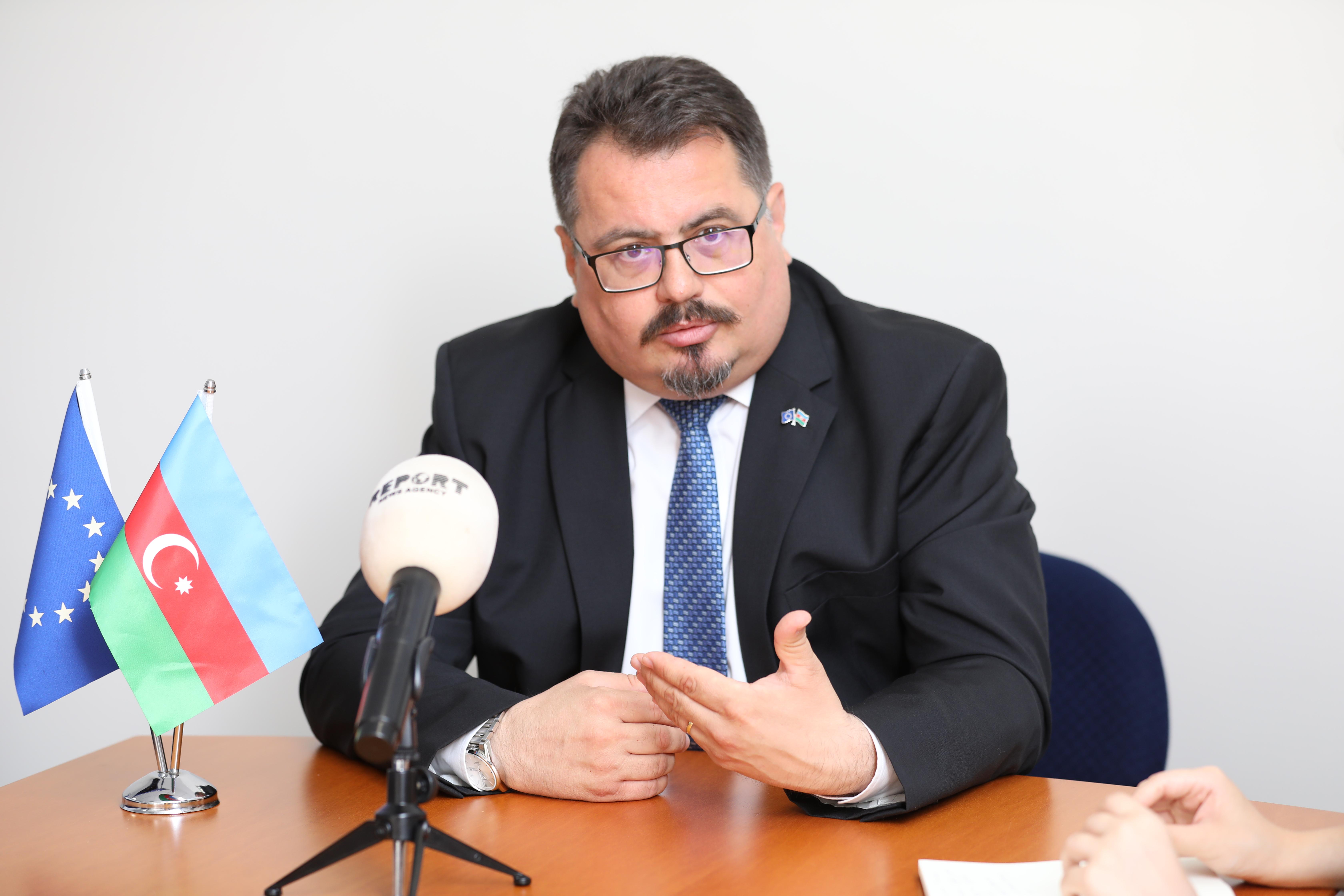
- How do you assess the assistance of the President of the European Council Charles Michel and the European Union in general in the normalization of relations between Armenia and Azerbaijan? Why is this topic so important for the EU?
-The involvement of the president of the European Council Charles Michel is a natural expression of not only the interest but also the will to contribute to the peaceful, secure, and prosperous of the Caucasus. It is natural for the EU to make it because Eastern Partnership, Southern Caucasus is the part of our neighborhood and it is a natural interest of the EU, as well as our partners in the region, to achieve stability, strengthen security, and see the prosperous region in the future.
We are glad that with the meetings mediated by President Charles Michel in December last year and several meetings that took part this year there were points of progress achieved. The agenda that has been agreed by the two sides, who follow with talks on a future peace agreement, is an important point as well as set up of a joint commission for delimitation and demarcation of the border between Azerbaijan and Armenia, as well as for transport connections and other issues. As you know, the EU is ready to continue these efforts and steps needed to support peace and security in Southern Caucasus with our involvement and support for demining. Our effort also continues with the intensive work of the EU Special Representative in South Caucasus Toivo Claar.
- What support does the EU provide to Azerbaijan in the field of demining the liberated territories and what expertise can the EU provide to our country in restoring these lands?
-On demining, the EU is already the largest international supporter in Azerbaijan in this important area indeed. It is crucial in terms of reconstruction. We've just announced and it was also underlined by the President of Council of Europe Charles Michel that there is a new package of support by EU for 25 million euros on demining and we will continue further activities in this regard for proper demining. But we also have in our previous package spent up to the 2.25 million euros the activities in mine awareness because it is a very important part, especially for people who will be returning to this territories. We are preparing a project that could be also supportive for victims of landmines that unfortunately are happening. Additionally to that, a number of EU member states have the expertise and also possibilities to support Azerbaijan directly in terms of technology and know-how.
- According to the EU Business Climate report, most EU companies operating in Azerbaijan have plans to expand operations in the country. 54% of respondents are interested in participating in projects in Karabakh and East Zangazur, 14% have already begun active work in this direction. What EU companies are interested in participating in projects to restore liberated lands? How many of them are involved today, what areas do they represent?
- Our economic commercial cooperation is growing and even during the pandemic period, we saw growth in 2021, we had record levels of commercial exchange beyond 15,4 billion euros. EU is the number 1 commercial partner of Azerbaijan, it is the first export destination for Azerbaijan and it is also the largest source of investments for the economic potential of Azerbaijan.
We also see that this positive tendency continues, we expect that this year could be even better in its results.
Obviously, we are also very proud that there are many European companies presented in the country and coming with more investments or the new investors are appearing.
They are interested in activities in many sectors, and reconstruction in regained territories is one of them. Several companies from a number of member states are already present there.
Their presence or activities are mainly related to the project that is contacted by the government for currently ongoing major projects of reconstruction. But of course, there is a growing interest, and therefore we also welcome the information that we can receive what the plans and priorities of further projects are.
As you know, the EU together with the UN and the World Bank is involved in the activity of expert assessment for recovery needs. We recently had an expert group here; it worked to prepare such an assessment mission. We are in close communication with the government on this, according to the priority and needs of Azerbaijan.
Also, the announcement of the 2-billion euro package of economy and investment plan, as you can record, was made in February during the visit of European Commissioner Oliver Varhelyi. This economic and investment plan has 5 flagship initiatives that are much in line with the priorities of the government, including priorities for reconstruction projects when we speak about green transition when we speak about Port of Baku, but not only this.
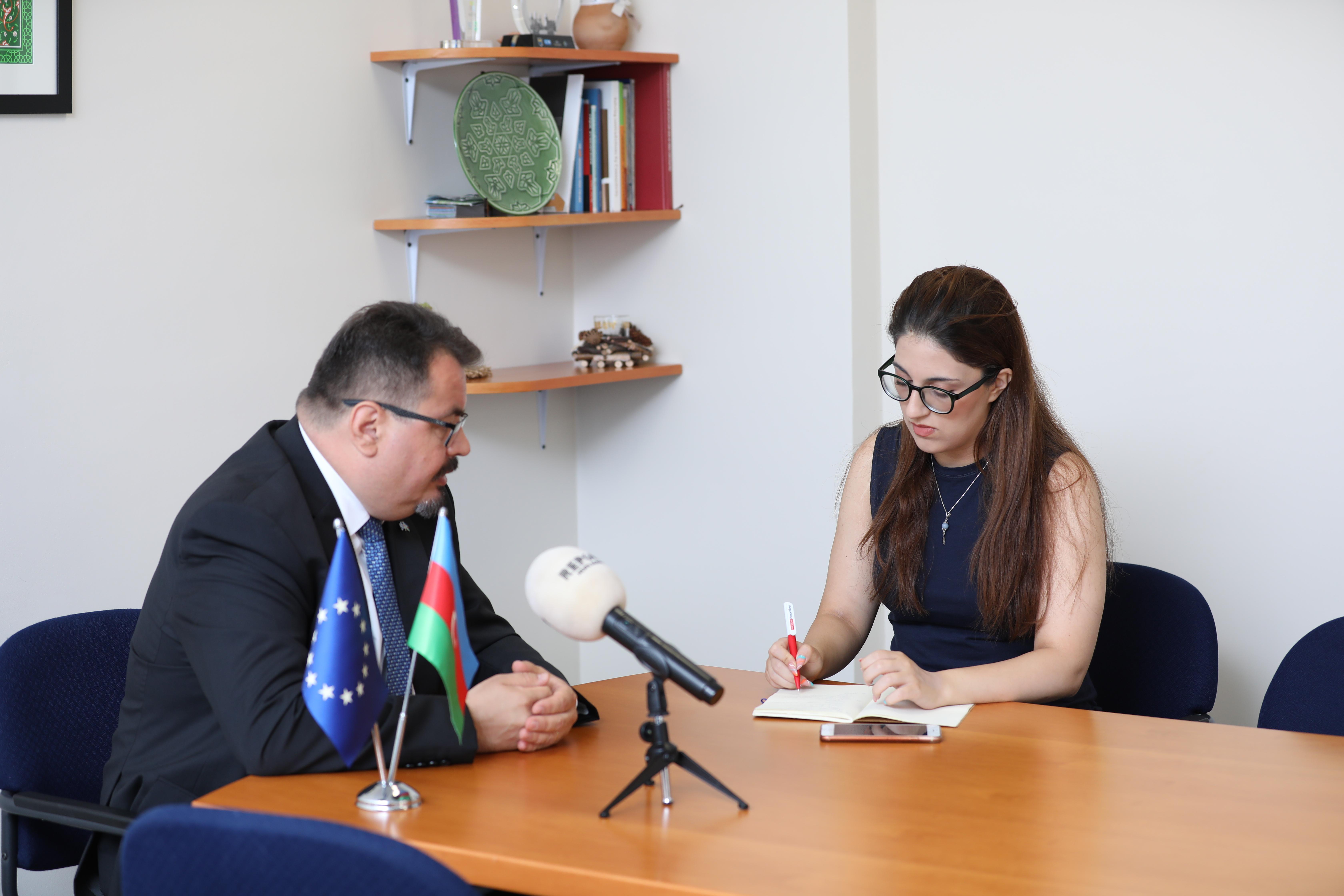
This is very much also about renewable sources of energy. We know that it was announced that the regained territories or conflict-affected territories will be mainly the area with the use of energy from renewable sources with a zero net emissions target.
Also other areas like digital transformation, like smart cities and smart villages, development of rural areas, and support to 25 thousand small and medium enterprises. All these projects can be supported countrywide.
- How are the negotiations on reaching a new agreement between Azerbaijan and the EU going? When is it planned to hold the next round of negotiations in this regard and can we expect them to be completed before the end of the year?
-The negotiations are ongoing in increased dynamics. Actually, communication is taking place regularly and frequently. As we speak, we hope that the conclusion of the agreement will be possible soon. The interest in the conclusion of the agreement was also expressed during the talks at the highest level last week in Baku. Also, it was mentioned during the cooperation council that took place in Brussel also last week.
- How is the cooperation between Azerbaijan and the EU progressing within the framework of twinning projects? What areas does it cover?
- This question allows me to show how strong the partnership between the EU and Azerbaijan is. Twinning is actually a form of sharing reforms because it gives an opportunity to institutions from member states of the EU and partner countries, with whom Azerbaijan works together and exchanges information, know-how, and practical experience from the area of interest. In this regard, Azerbaijan is actually a front-runner among partner countries of the Eastern Partnership, when it comes to twinnings.
Above 50 twinning projects have been conducted or are taking place right now. These projects are usually financed between 1-2 million euros each and are mainly focused on sharing of expertise which means meetings and activities that aimed to support the creation of structures or legislation or secondary legislation.
One important aspect is that the form of cooperation support is adjusted to the needs and interests of a partner country. We will continue this intensive cooperation in the future, it is very truthful and very appreciated by partner institutions in Azerbaijan.
It is important that legislation that is created in these activities is adopted and developed into practical use. This makes benefits for the citizens, for a business environment that brings investments again, creates workplaces, and in general improvement.
It shows how strong the partnership between the EU and Azerbaijan is and how we can work together to achieve the highest standards in the world. We consider that what we have to and can offer is interesting for our partner.
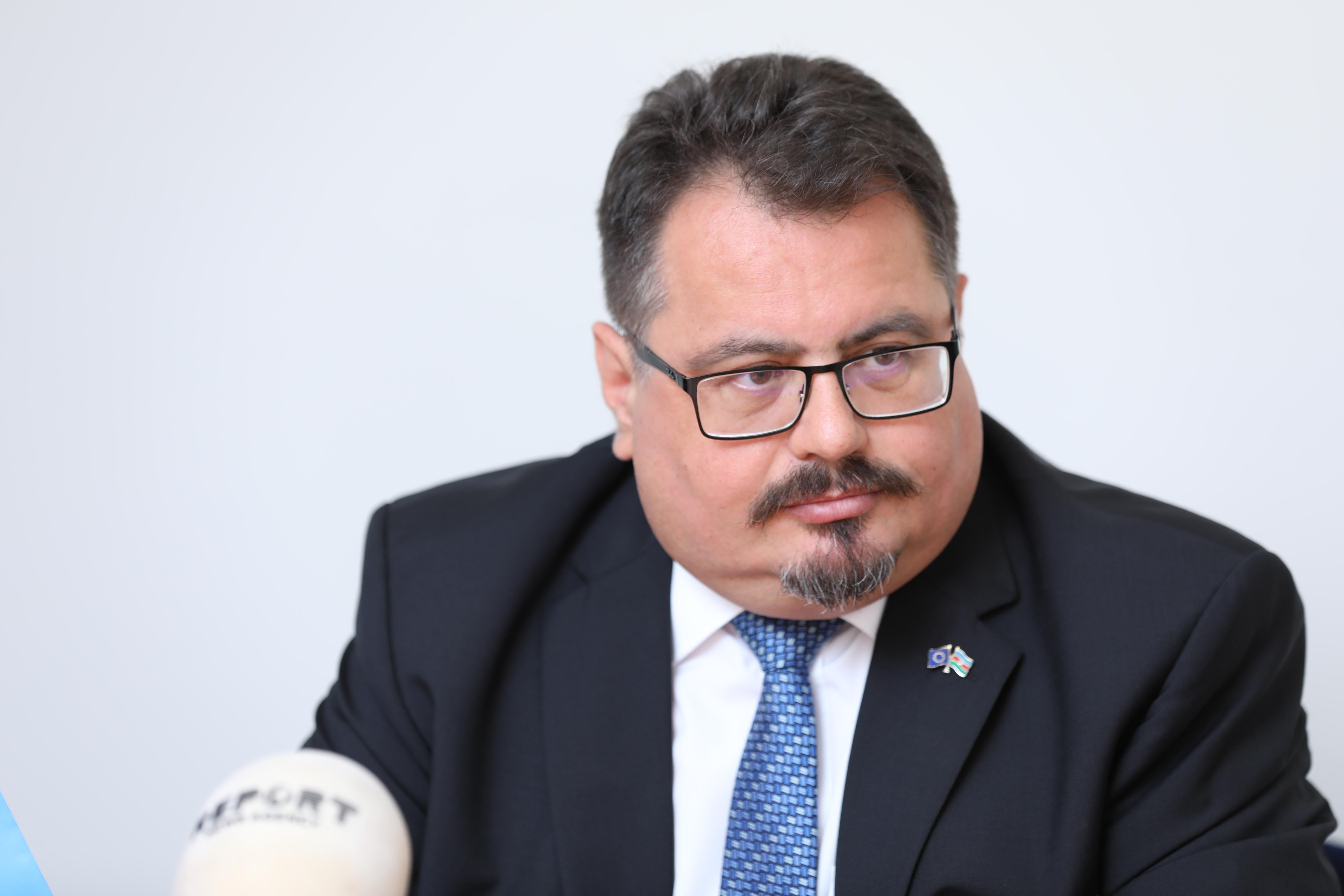
- Against the backdrop of the ongoing events in Ukraine, there are more and more statements that the Eastern Partnership program is not working and the EU needs to develop a different approach to the partner countries of this program. What do you think? Has this format justified itself, or should the EU develop a new approach to its eastern neighbors? And what do you think it might be? Can the approach/format of the Eastern Partnership change in connection with the war in Ukraine?
- Honestly, I am very surprised to hear such a question. I didn’t see any reason why the Eastern Partnership should be changed in the current circumstances of the tragedy of war and aggression that Russia started against Ukraine. That was a totally unjustified and unprovoked act. The killing of innocent people of Ukraine by Russia must be stopped immediately.
When it comes to Eastern Partnership everything that we discussed shows how beneficial this project is for Azerbaijan as a partner country and for countries in the Eastern Partnership, in general. Eastern Partnership is a part of the European Neighborhood Policy which means that we worked with our neighbors and our partners and we work together for our joint benefit.
We've mentioned important areas in this regard: economic cooperation and trade exchange that bring prosperity, workplaces for people, investments and reforms that have a scope of sustainability, and even more development for the partner countries. For that, the EU offers support to reforms and as we said works jointly at the highest standards in the world. Then the Eastern Partnership has proven its open and flexible approach when it comes to the bilateral track of cooperation, it is very well adjusted to what partners want to achieve in this partnership and there is also a multilateral track that is open for working in a multilateral format. Everybody can benefit from that.
What we saw recently with the summit of Eastern Partnership in December last year is that we all understand the need for recovery and resilience and reform. I think we all also saw the importance of partnership during the pandemic when with joint cooperation, a number of countries could see an easier way out of this situation. We can see how to cooperate to overcome these kinds of challenges. We will continue to develop Eastern Partnership.
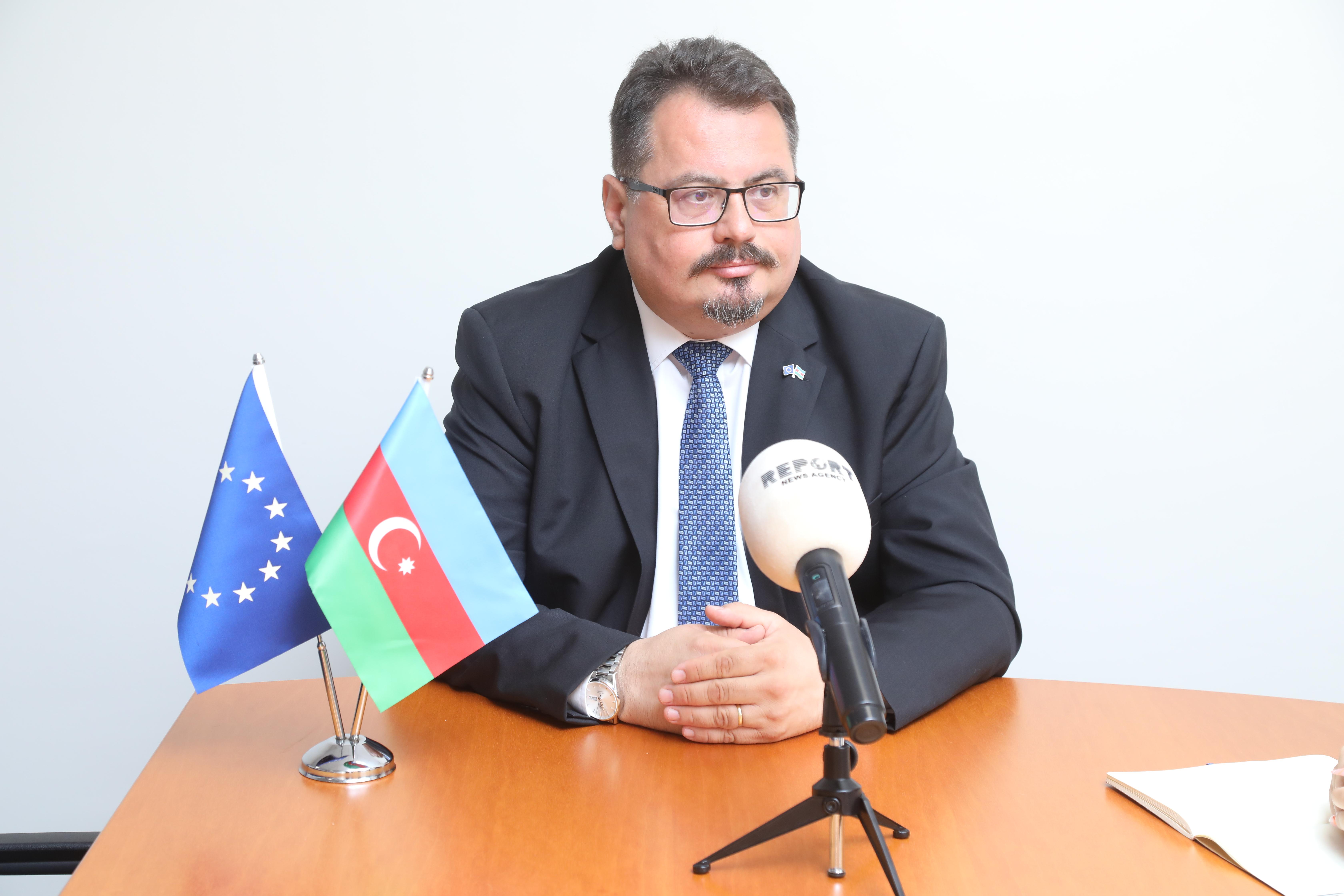
- Has the pandemic affected the implementation of the EU educational programs such as Erasmus+? Has the number of Azerbaijani students studying in EU countries on this and other educational and humanitarian programs decreased?
- Erasmus + is a very good example of programs that are developed and offered to the partner countries in Eastern Partnership and how people can benefit from Eastern Partnership in a very concrete manner. Another program is, for example, “Creative Europe” or “Horizon Europe”, that is for culture or for scientific cooperation at the top level.
Erasmus+ is a form of exchange at the people-to-people level. During the pandemic, it was affected in terms of physical participation and education activities in other countries because this is related to traveling. Perhaps, there was a decrease in terms of numbers but, on the one hand, a number of activities moved online during those years. Now we see an intensive effort for recovery and reinstating numbers of students who will indeed travel and spend a certain amount of time at universities in other countries, come back and use gained knowledge for the benefit of the country, the academic institutions, and inter practical professional life in the future. This is the essence of Erasmus+.
I think that Erasmus+ that offers to countries that are the partner countries in the EU is focused on a number of areas, scholarship being one of those. Because there is also a part that is open for professors. On the scholarship, we know that with the current budgetary cycle of the EU, the financial resources dedicated to Erasmus+ have been increased twice. So there is overall a better opportunity for getting scholarships or traveling to universities.
In a number of member states, these activities are very much enhanced by universities, it is a very flexible and centralized program that is very much appreciated by young people in Azerbaijan, but also European students that can come to Azerbaijan. There is an exchange partnership and there is a very dynamic exchange of Azerbaijani students to European member states and students from EU member states to Azerbaijan.
I recently met with several of those who came from various EU member states. This week I will also meet with Azerbaijani students. They are preparing to go to European universities usually for one semester.
We are also very proud that we have “Young European Ambassadors” and we are informing the public in Azerbaijan about the EU and the cooperation that we have between the European Union and Azerbaijan and how people in Azerbaijan can benefit from various parts of this cooperation projects and offers.
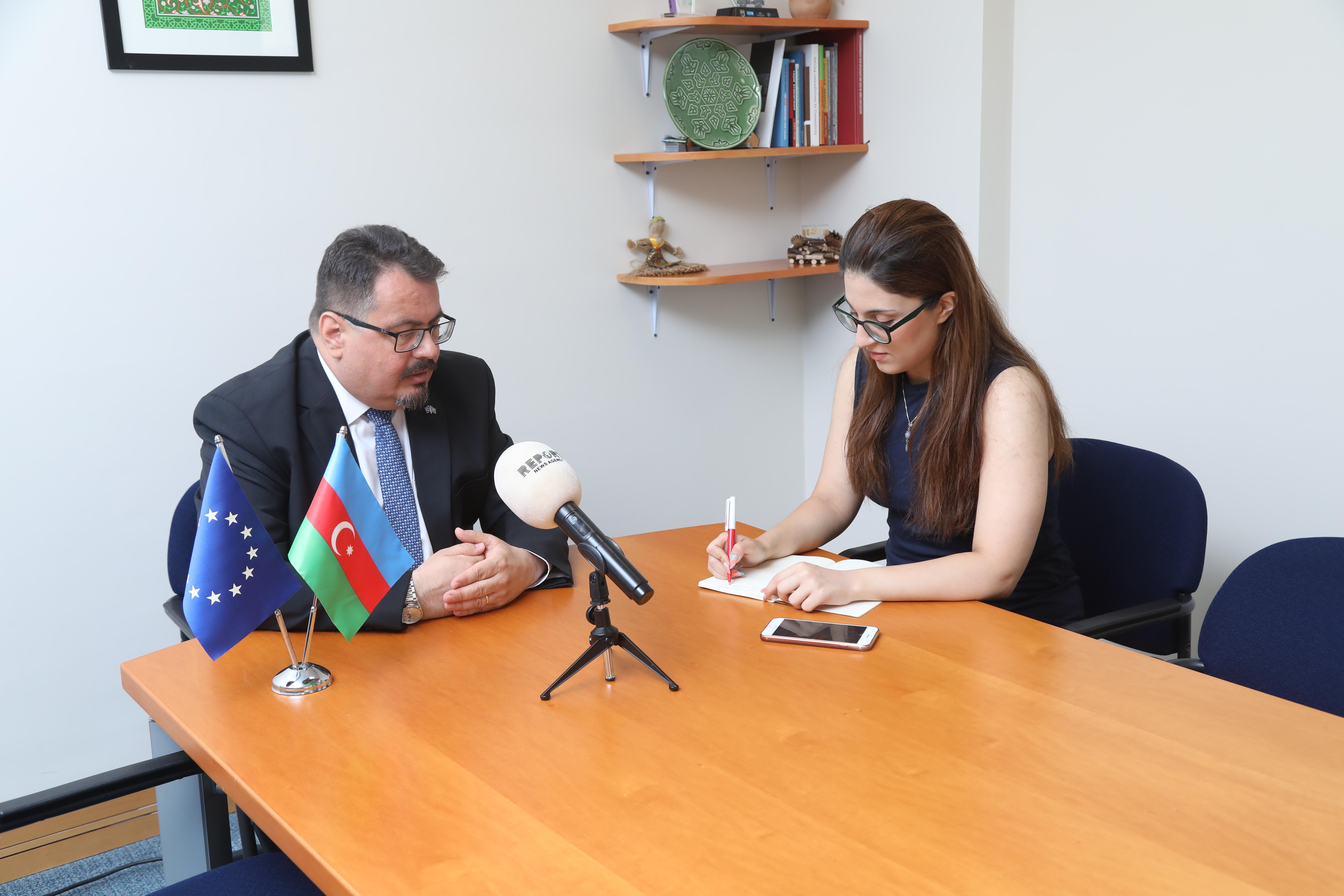
Young European Ambassadors is a group of very enthusiastic young people who are very active exactly in terms of communicating this information, bringing it to people, and helping to develop activities that will be beneficial for Azerbaijan in cooperation with the EU.
We are very glad that a group of young ambassadors from Azerbaijan is the most active and the largest within the Eastern Partnership. This is also a great contribution to the image of Azerbaijan and the EU in the world.


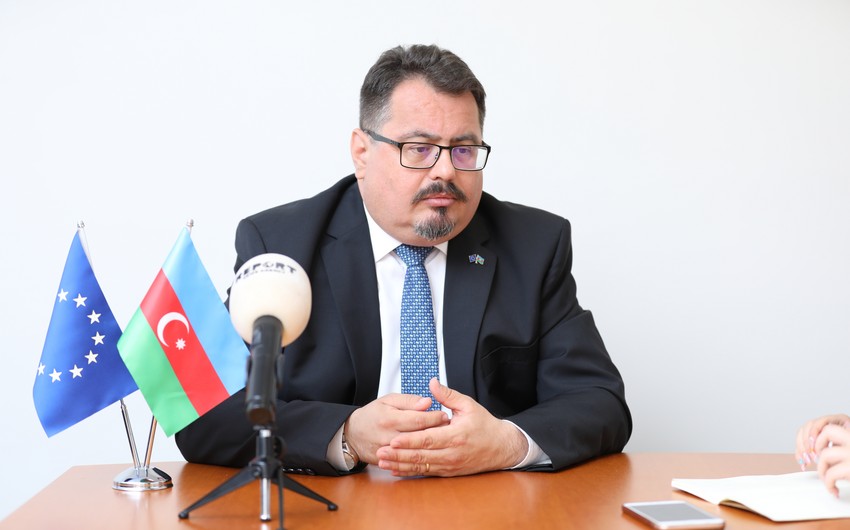 https://static.report.az/photo/5ef916de-124b-3aca-866e-e07b3754770c.jpg
https://static.report.az/photo/5ef916de-124b-3aca-866e-e07b3754770c.jpg

